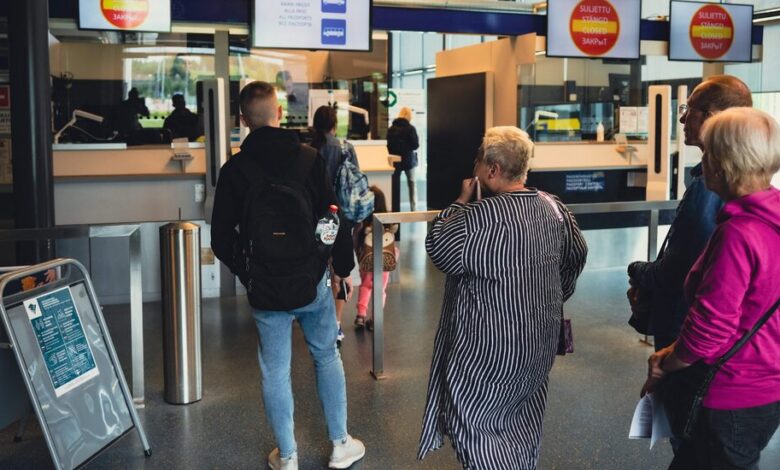The European Union moves to restrict visas to Russians, but does not ban them.

BRUSSELS — After a heated debate, European foreign ministers agreed on Wednesday to suspend a 2007 agreement with Russia that makes it easier for Russians to get visas to travel to the European Union.
The full suspension of the agreement was a predicted compromise. Numerous member states, including Poland, Finland, the Baltic nations and the Czech Republic, wanted to ban all Russian tourists to show Europe’s objection to Russia’s invasion of Ukraine.
Other countries, including France and Germany, opposed such a blanket ban as a form of collective punishment that would only feed the Russian government’s narrative about what it characterizes as a defensive war against Western encroachment.
The suspension of the agreement will make it harder for Russians to get European Union visas — they will cost more, require more paperwork and involve longer delays. The bloc’s foreign-policy chief, Josep Borrell Fontelles, said after a two-day meeting in Prague that the suspension will “significantly reduce” the number of visas issued to Russians.
But he also emphasized that individual countries can decide for themselves how to control their borders. That includes those bordering Russia, which have seen a sharp increase in Russian travelers as air links have been blocked by sanctions. Under the rules of the Schengen area, which allows free travel within 26 countries, individual states can alter border rules for reasons of national security and restrict entry to visa holders.
Poland, Finland, Estonia, Latvia and Lithuania said in a joint statement that until there was a satisfactory bloc-wide agreement, they would put into place “temporary measures on the national level in order to address imminent public security issues related to the increased influx of Russian citizens across our borders,” language that comports with the Schengen rules.
Already, a number of those countries, including the Czech Republic, have stopped issuing visas to Russians or have sharply reduced their availability. But there are more than 12 million valid visas in the European Union held by Russians, said Jan Lipavsky, the Czech foreign minister, so the potential issue is enormous.
The ministers asked the European Commission, the bloc’s executive, to come up with a coordinated plan to reduce those numbers, Mr. Borrell said.
More than one million Russian citizens have entered the bloc through land border crossing points since the beginning of Russia’s invasion of Ukraine, most of them via Finland and Estonia, the bloc’s border agency, Frontex, has said.
Visas will still be granted on an individual basis or for specific groups, Mr. Borrell said.
“We don’t want to cut ourselves off from those Russians who are against the war in Ukraine,” he said. “We don’t want to cut ourselves from the Russian civil society.”




